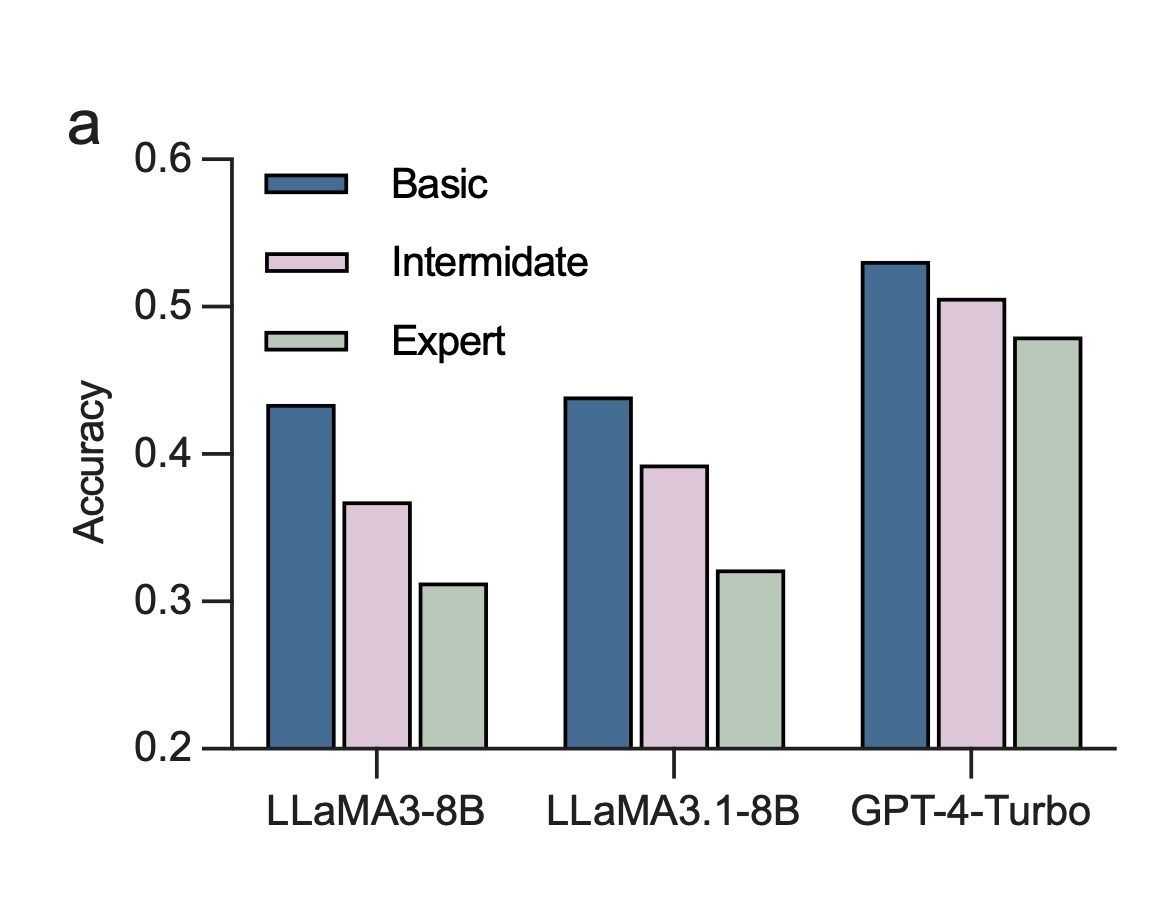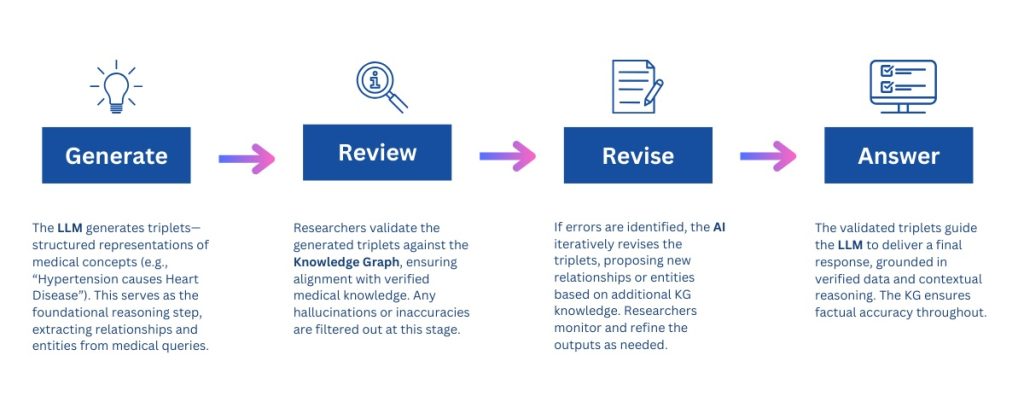
The healthcare industry faces a unique challenge: balancing innovation with the critical need for precision. A single mistake in a diagnosis or treatment can have devastating consequences, making high accuracy non-negotiable. Harvard Medical School recently uncovered limitations in large language models (LLMs), such as hallucinations (fabricating non-existent information), which hinder their reliability in complex medical reasoning.
Integrating LLMs with knowledge graphs (KGs), Harvard proposes a groundbreaking methodology that not only addresses these limitations but also paves the way for transformative applications in healthcare. Let’s explore the implications and the broader value this innovation can deliver.
The Core Challenge: AI’s Limitations in Healthcare
In healthcare, the stakes are high. AI models must provide accurate, reliable insights, but LLMs like GPT-4 Turbo reveal significant gaps:
- Hallucinations in Responses: LLMs often generate incorrect or fabricated medical information.
- Limited Understanding of Nuance: The inability to connect codified (structured) and non-codified (unstructured) medical knowledge hinders reasoning.
- Poor Performance on Complex Questions: Accuracy drops significantly for intermediate or expert-level medical questions.
These limitations become glaringly evident in benchmarks:

The Solution: Harvard’s Knowledge Graph Agent
Harvard introduced a Knowledge Graph Agent (KG Agent) that integrates the strengths of LLMs and KGs to address these challenges. The KG Agent offers a groundbreaking methodology for grounding LLM outputs in structured medical knowledge, enabling more reliable and context-aware responses.
This methodology systematically combines:
- Knowledge Graphs (KGs): Structured repositories of verified relationships between medical concepts, such as diseases, symptoms, and treatments.
- LLMs: Models capable of reasoning with unstructured data and learning from it iteratively.

Harvard’s groundbreaking process integrates large language models (LLMs) with knowledge graphs (KGs) to achieve greater accuracy and reliability in medical reasoning. The methodology follows four key phases—Generate, Review, Revise, and Answer—to ensure factual grounding and context-aware outputs.

How This Innovation Democratizes Healthcare
Imagine a world where accurate medical expertise is accessible even in the most underserved communities. Harvard’s methodology has the potential to democratize healthcare, offering scalable solutions for rural and resource-limited areas.
Take the example of barangays in the Philippines. Healthcare systems in these areas often have only a nurse or midwife, with little to no access to general or specialized doctors. An AI-powered chatbot, guided by a KG Agent, could:
- Provide accurate diagnoses by grounding responses in verified medical data.
- Improve access to medical expertise without requiring a doctor’s presence.
- Act as a cost-effective assistant for healthcare workers, enabling them to handle more complex cases.
This innovation has the potential to address significant gaps in local healthcare infrastructure, offering transformative solutions where they are needed most.
What This Means for Healthcare AI
Harvard’s KG Agent is more than just an academic innovation—it represents a significant opportunity for healthcare businesses. Integrating this methodology allows organizations to:
- Enhance Diagnostic Tools: Deploy chatbots and virtual assistants capable of accurate and context-aware medical reasoning.
- Scale Access to Expertise: Deliver reliable healthcare solutions to underserved areas, addressing gaps in local infrastructure.
- Empower Healthcare Workers: Support nurses and midwives with advanced AI tools to improve decision-making in complex cases.
This ability to merge structured and unstructured knowledge could redefine how healthcare challenges are addressed, creating scalable, reliable, and impactful solutions.
Why It’s Time to Embrace This Technology
For healthcare leaders, adopting AI isn’t just about innovation—it’s about making healthcare more accessible, equitable, and accurate. Harvard’s KG Agent demonstrates how AI can rise to meet these challenges, delivering practical and transformative results.
At Predictive Systems Inc., we’re excited about the possibilities this technology offers. Imagine the impact of integrating these advancements into your healthcare solutions. Curious to learn more? Let’s explore how AI can transform your operations together.


